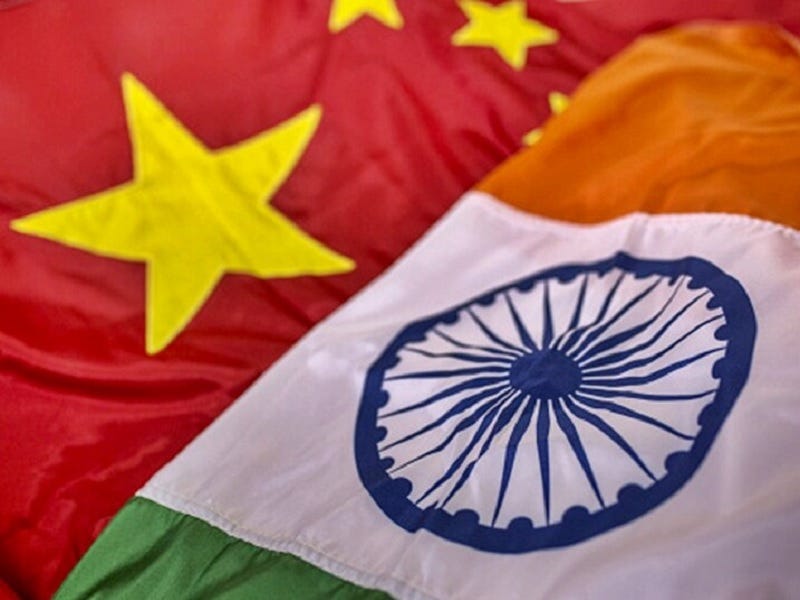Analyzing India’s Decision To Abstain From The UN Vote On Xinjiang
This can be interpreted as India expressing a sincere desire to further explore the Asian Century scenario connected with China’s likely policy recalibration after this month’s National Congress. Any tangible progress on this front would ensure a semblance of stability amidst the chaotic systemic transition to multipolarity and signal that China tacitly dropped its superpower plans in favor of a truly multipolar balancing act.
India abstained from the UN Human Rights Commission’s vote on debating alleged (and arguably groundless) abuses in China’s Xinjiang Uyghur Autonomous Region (XUAR), explaining afterwards through its Ministry of External Affairs spokesman that “It is in line with India’s practice of not voting on the country-specific resolution.” This is true, but there are also deeper strategic layers to it than simple policy consistency, which will be touched upon in the present piece.
First, India’s principled neutrality that it continues to pragmatically practice towards the Ukrainian Conflict in spite of immense US pressure upon it to condemn and sanction Russia has turned this South Asian civilization-state into a global icon of neutrality. Second, the successful reassertion of its strategic autonomy makes it the most credible player for leading a new Non-Aligned Movement (“Neo-NAM”) around which the Global South can gather.
Third, India’s indisputably independent foreign policy that’s been on full display over the past seven months has clearly impressed China, which recently agreed to the mutual disengagement of their military forces from their disputed frontier. Fourth, this development coincided with their representatives reaffirming their shared desire to jointly build the Asian Century. And fifth, this vision for the direction of the global systemic transition to multipolarity requires mutual Sino-Indo respect.
Up until recently, India suspected that the Asian Century was a euphemism for de facto Chinese unipolarity over the continent, hence the importance of these two working together as equals to build that future. Those declarations also importantly came around the time that China’s superpower trajectory appeared to have been derailed by the Ukrainian Conflict due to the paradigm-changing systemic consequences that this US-led NATO proxy war on Russia unleashed.
Their cumulative effect was to accelerate tripolar trends that in turn advance the global transition’s ultimate evolution towards complex multipolarity (“multiplexity”) instead of turning the present bi-multipolar intermediary phase into the status quo for the indefinite future. China’s response to all of this could very likely be the mild improvement of its relations with the US exactly as Kissinger predicted, though balanced to an extent through the continued improvement of relations with India.
Exclusively prioritizing the first-mentioned scenario could prompt concern in India that the American and ([formerly?] aspiring) Chinese superpowers are tacitly coordinating to delay the global systemic transition’s evolution away from bi-multipolarity in order to safeguard their shared structural interests. Focusing exclusively on the second, meanwhile, could prompt concern in the US that China is trying to shut it out of Asia. Both could unwittingly increase the risk of each respective player clashing with China.
Chinese grand strategy, irrespective of whether it continues aspiring for superpower status like many suspect despite its denials or if it pragmatically recalibrates towards settling for becoming the most powerful economic player in multiplexity, is predicated on stability in the global system. To that end, it’s of the highest importance for the People’s Republic to simultaneously balance its relations with India and the US, not to mention Russia.
Regarding the first, this explains the recent reaffirmation of their shared desire to jointly build the Asian Century, with India sincerely intending to explore this possibility as evidenced by its abstention from the latest vote on Xinjiang out of respect for China. As for the second, China’s tacit compliance with the US’ anti-Russian sanctions as confirmed by Biden himself lays the basis for de-escalating tensions to an uncertain extent out of their shared interests in more effectively managing the global economic crisis.
The Russian dimension of China’s balancing act involves the People’s Republic continuing to practice its own policy of principled neutrality by not publicly condemning or formally sanctioning Moscow in parallel with cooperating on issues of shared strategic interest like de-dollarization and the energy trade. In the absolute and extremely unlikely worst-case scenario that Russia risks “Balkanization”, China might openly violate US sanctions in order to safeguard the northern vector of its national security.
Returning back to India’s decision to abstain from the UN vote on Xinjiang, this can therefore be interpreted as Delhi expressing a sincere desire to further explore the Asian Century scenario connected with China’s likely policy recalibration after this month’s National Congress. Any tangible progress on this front would ensure a semblance of stability amidst the chaotic systemic transition to multipolarity and signal that China tacitly dropped its superpower plans in favor of a truly multipolar balancing act.



#EveryInch of 1991 Ukraine territory will be liberated. And then not only Putincuck but also all these shitty propagandists would be dealt with very severely.